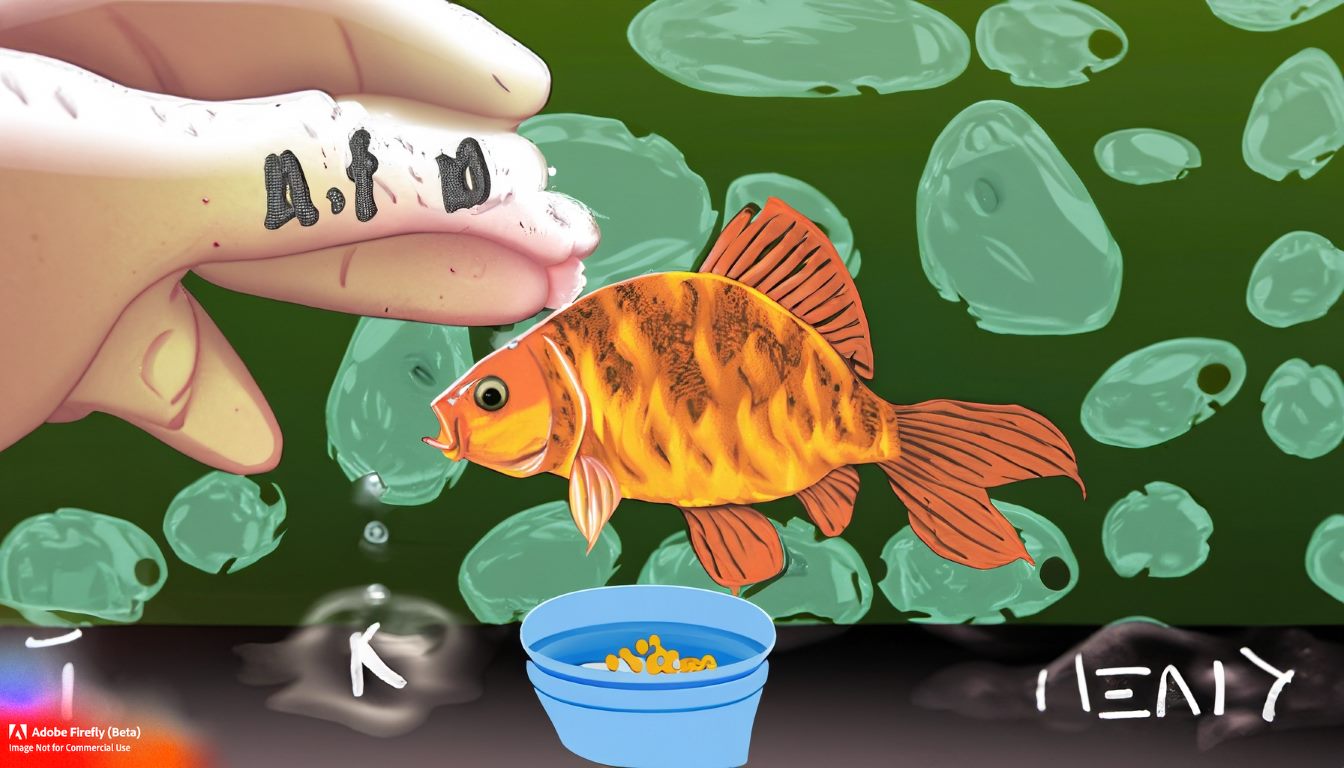
Setting up new tanks and introducing fish into them is very exciting. The possibilities are enticing, and you can’t help anticipate what the future has in store for you and your tank,
After acclimatization of fish in the aquarium, the next thought is when you are supposed to feed your fish – for the first time.
The recommendation is to feed your fish after 24 hours have elapsed. Delayed feeding gives your fish time to settle and be comfortable with the new environment. Some fish will refuse to eat even if you drop the most enticing fish meal.
Do not worry! It is usual for fish to go on hunger strikes when introduced to new homes. They will hold off food until they get properly acquainted with the environment. Since fish can stay at least one week without food, it is okay if they don’t eat for the first few days.
Why does all of this happen anyway? Why must I wait for hours on end before I can finally feed my fish for the first time? Let us see!
Why wait 24 hours till we can feed for the first time
It is important to note that this is not a rule that must be adhered to strictly. It is a recommendation based on the experience of aquarists with vast experience in the topic discussed.
As I mentioned above, the reason behind not feeding fish immediately or a few hours after is to give your fish time to settle. The sudden change of environment, from the local fish store to your tank, causes stress.
The stress is manifested as lack of appetite, faded colors in some, and a low immune system. New fish are susceptible to diseases, and even the slightest interference from you can have far-reaching consequences.
Furthermore, feeding influences water quality. If you are familiar with the nitrogen cycle in aquariums, waste matter from digestion is eventually turned into nitrogen toxins. Fish in tanks that are still cycling are exposed to toxins, even with chemicals additives in play. Delayed feeding gives time for the system as a whole to accommodate its new members.
You should avoid regularly feeding altogether until the cycle is complete. During cycling, your fish can do with alternate days of feeding. Trust me; it benefits them more than it hurts them in the long run.
Lack of appetite for extended periods
it is perfectly normal for fish to have hunger strikes when new. However, an extended period of a hunger strike is not normal.
Fish lose appetite mainly due to the stress they feel. New tanks will stress them a bit, but they will get over it in a few days. Thus, it would help if you took prolonged periods of refusal to eat as a signal for something not right in your tank.
Do some tests and check the physical components to establish where the problem is. When you solve the problem causing stress, fish will eventually regain their appetite.
Remember, a stressed fish has a reason to be stressed. You have to find that reason and fix it appropriately.
How to settle your fish faster in new aquariums
Stressed fish in new habitats have high chances of dying. You must know how to get your fish comfortable in a new environment; otherwise, you might lose the pet as early as the first day after buying it.
What should aquarists do quickly settle fish in their new homes? Below is a bullet list of my recommendations:
- Check the components of your aquarium (heater, filter, etc.) for any functional breakdowns. You ought to have your gadgets working efficiently, more so, when you have new fish around.
- Adjust water parameters accordingly before the introduction of fish. A high level of ammonia or nitrites is detrimental to fish’s health and, at times, fatal. Parameters like pH, temperature, and water hardness should be ideal for the fish.
- Good decorations and a variety of private spots heighten the chances of your fish getting comfortable. It is good to give your fish some cover and places to blow some steam off. The more a fish can feel at home in the tank, the faster he/she adjusts to the environment.
- Acclimate your fish to aquarium water. Acclimations can be conducted in different ways to ensure the fish in question is not shocked or stressed when placed into the tank. Be patient and give the process of acclimation time for more outstanding results.
- Use chemical additives like Seachem stability to stabilize water parameters. It helps in alleviating possible causes of stress in fish in aquariums.
- For the first few days, feed your fish live foods only and gradually mix other types of fish food. Give your fish enough time to adjust to its new feeding regimen properly.
- Maintain general tank cleanliness. You probably won’t like a stinking home. Hence, fish should also have no less in that department. Suspended particles from substrate/debris and what has no place in suitable aquariums.
- Perform frequent water changes. The change can be 10% to 15% daily until the aquarium is appropriately balanced with the new addition. You can adjust the frequency of the changes afterward.
Conclusion
One of the most important aspects to consider when setting up a new aquarium is feeding your fish. Fish usually need 24 hours before they are ready to eat, so try not to disturb them too much by overfeeding in the first few days after adding them into their new home. Be careful not to stress the fish while in a new environment; it can take time for some species to settle down and get used to their surroundings.

Jesse is the principal author of this blog. He is an avid fishkeeper with rich experience spanning several years. He is here to share his knowledge and ensure you also have a guiding compass, as he did with his father.